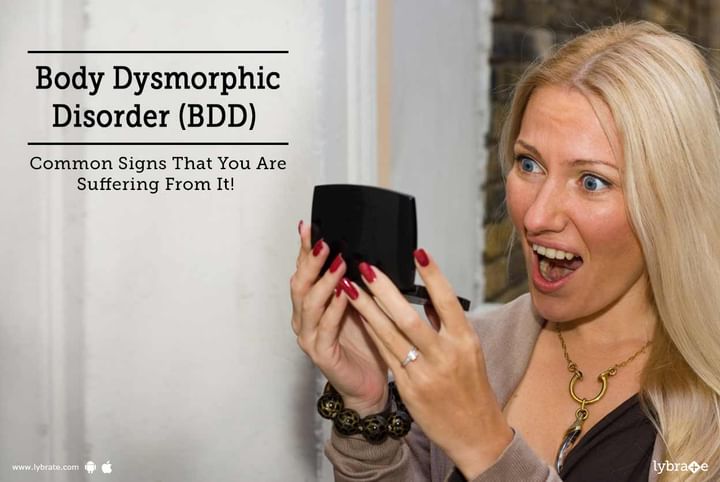Body Dysmorphic Disorder (BDD) - Common Signs That You Are Suffering From It!
Body dysmorphic disorder or body dysmorphia is categorized as a mental disorder which affects your mind, making you constantly think and worry about one or more conjured defects or flaws in your appearance. These flaws, to others, may seem minor and unnoticeable, even unobservable, but it affects you and makes you ashamed, less confident and forces you to stay away from any social interaction.
Body dysmorphia makes you obsess over your appearances intensely and the image of your body that you want to portray. You tend to repeatedly check the mirror and groom yourself constantly as a way to seek reassurance from your peers and yourself, often a number of times a day. This kind of obsession causes you distress and impacts the normalcy of everyday life.
Many affected individuals seek the help of cosmetic surgeries to try to make themselves perfect. However, this may give a temporary sense of satisfaction, but they are soon back to square one and are prepared to go under the knife again to fix something minute that may arise.
Signs and Symptoms of BDD
- An individual’s extreme preoccupation with any conjured flaws in their appearance that is completely minute and unobservable to others.
- Possession of a strong belief that the individual has a defect in his/her appearance and it makes him/her ugly or deformed.
- An irrational belief that other people take too much notice of your appearance and they mock you for it.
- Constantly engaged in actions to hide the so-called perceived flaw that oftentimes become involuntary and in front of other people as well. Like looking for a mirror everywhere and applying makeup or grooming items even though it is not required at that moment.
- Using makeup, clothes and styling accessories to hide perceived flaws.
- A tendency to compare one’s own appearance with others, often in a negative way.
- Asking others and seeking reassurance from them about one’s appearance.
- Possessing a tendency to try to look perfect or to look the way others perceive as perfect.
- Availing the help of cosmetic surgeries to look “good”. But getting little satisfaction from it.
- Avoiding any kind of social contact and situations.
- Disruption of social life and everyday life caused due to extreme preoccupation with appearance.
Affected individuals have a tendency to obsess over a change in the body. Body changes are natural, but a body dysmorphic individual will make a huge deal of it. These body parts will include:



+1.svg)
